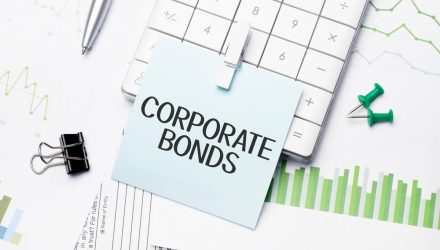Corporate bonds, including investment-grade fare, were punished this year by the Federal Reserve’s six interest increases, but some market observers believe the darkest days have passed the asset class. Additionally, they argue that there might be value available with high-quality corporates, indicating that opportunity may be found with exchange traded funds such as the SPDR Bloomberg SASB Corporate Bond ESG Select ETF (RBND).
In fact, RBND could be an ideal near-term consideration not only for investors looking for value in the bond market, but those looking to do some year-end tax-loss harvesting by selling a lagging bond fund while moving into an environmental, social, and governance (ESG) product. There are compelling reasons for income investors to give RBND a near-term look.
“The short answer is there is an awful lot of bad news priced into investment-grade markets at these current levels. Spreads are trading not far off where we were back in March 2020 when we were living through the Covid crisis, with all the uncertainty that brought about for the economy,” noted Victoria Whitehead, fixed income portfolio manager at BNP Paribas. “We are also a long way from the highs that we saw in 2007 and in 2019. So we still have the possibility to trade tighter next year, given the fact that we will see more stability in the rates markets.”
RBND, which follows the Bloomberg SASB® US Corporate ESG Ex-Controversies Select Index, is pertinent for other reasons. The ETF sports an option-adjusted duration of 7.21 years, putting it in intermediate-term territory. Intermediate-term bonds are the least correlated to equities, meaning that RBND can offer more diversification than a longer-duration equivalent.
Second, RBND’s credit risk is mitigated by the fact that over 45% of its 460 holdings have “A” ratings of some form. That’s something to consider, particularly if the U.S. economy contracts in earnest next year. RBND’s credit quality is also important because highly rated companies are less likely to subject investors to defaults.
“I think it’s unlikely for investment-grade credit – the companies that are of the highest quality. It’s much more likely that default ratios will tick up in the high-yield markets,” concluded Whitehead. “But we are starting from a very, very low level. It is inevitable that we will see earnings deteriorate from here because most of the corporates that we cover in our universe have had very good earnings year-to-date. The credit ratings are still very strong and we have seen a number of upgrades throughout the year, regardless of the fact that credit markets are going through a difficult phase. So what we can say is that investment[1]grade corporates are going into this crisis in a very solid position compared to previous downturns and to previous recessions.”
For more news, information, and strategy, visit the ESG Channel.
The opinions and forecasts expressed herein are solely those of Tom Lydon, and may not actually come to pass. Information on this site should not be used or construed as an offer to sell, a solicitation of an offer to buy, or a recommendation for any product.

